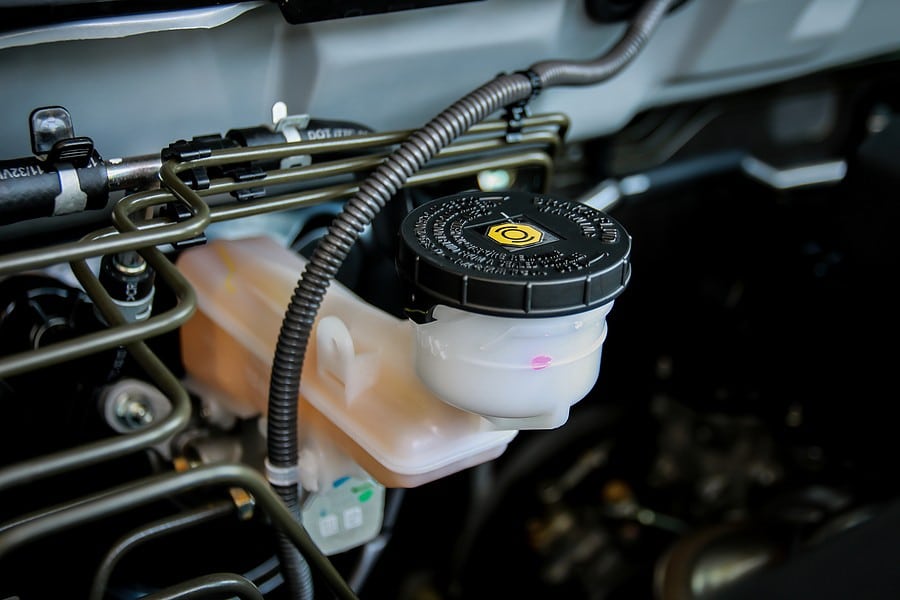476
If the brake fluid in your vehicle is leaking, you are on red alert. This means that you must not drive your car under any circumstances
Brake fluid leaking – what you need to know
It is relatively easy to recognize that your car is leaking brake fluid: there is a damp spot where you parked your car. In addition to the brake fluid, it may also be oil or water, which you can easily determine from the consistency and smell. One thing applies in any case: no matter what it is, you must deal with it immediately.
- If the stain on your car’s parking space is brake fluid, a specialist should deal with it immediately. Driving with a defective brake system is not only life-threatening for you and other road users. If it is discovered that the brake system was already defective before the accident, you will also lose your insurance cover. In addition, you can expect serious legal consequences
- The brake fluid plays a key role in your vehicle’s braking system. The brake fluid is used to transfer the pressure from the brake pedal to the wheels. The brake fluid is also responsible for the brake pads pressing against the brake discs. This brings the car to a quick but gentle stop.
- In short: The brake fluid plays an extremely important role in the hydraulic forces within the brake system and contributes significantly to a quick and effective braking process. However, it is important that both the brake fluid level is optimally adjusted and that the correct brake fluid is filled in. The brake fluid should also be replaced regularly
Brake fluid – how to prevent leaks
There are various causes of leaking brake fluid. Common sources of faults are defective seals in the brake system or damaged lines. Corrosion at the connection points can cause the brake fluid to leak.
- But ultimately, it doesn’t matter which source of the fault is responsible for your car losing brake fluid. A correct analysis and subsequent professional repair of the faulty area should always be carried out by an expert
- To prevent fluid leaks from occurring in the first place, it is advisable to have regular inspections and, if necessary, maintenance work carried out. The optimum brake fluid also plays an important role. The two most common types are DOT 3 and DOT 4. The two types differ mainly in their viscosity and boiling point. You can find the optimum type for your vehicle in the manufacturer’s manual
- Another important aspect when using brake fluids is their hygroscopicity – i.e. their ability to attract water. As water lowers the boiling point of the fluid and can therefore cause the brake system to fail, you must ensure that the brake system is always well sealed.
- In summary, it can be said that the brake fluid is an essential component of the brake system. Regular maintenance along with changing the brake fluid is essential to ensure that the car functions optimally.
